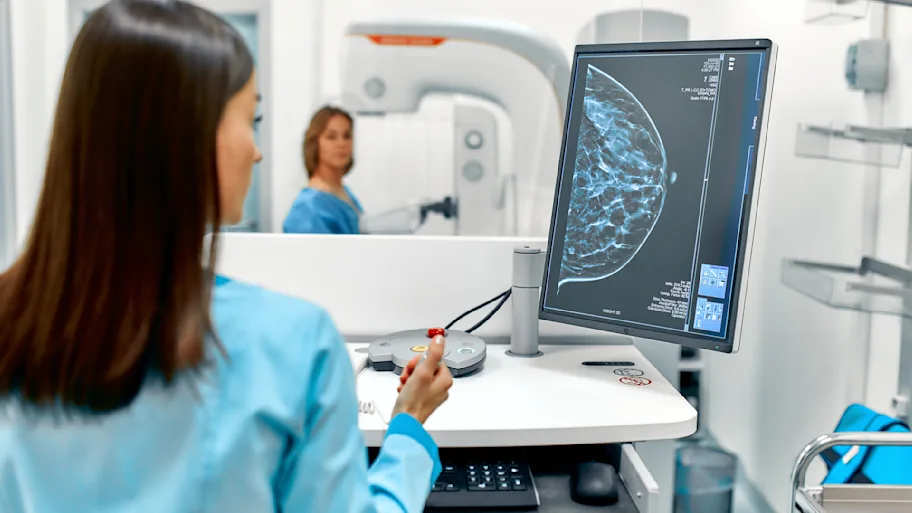
- Science News
- Research Topics
- Time to grow a mustache: five Research Topics exploring men-related issues
Time to grow a mustache: five Research Topics exploring men-related issues

As Movember arrives each year, men around the world channel their inner Tom Selleck, displaying mustaches all over social media. Yet, behind this viral trend lies a movement dedicated to spotlighting an often-overlooked issue: men's health.
On average, men have shorter life expectancies than women—a gap that begins at birth and widens with age. This disparity is not merely biological; men experience higher rates of smoking, alcohol consumption, and substance use. They also are less likely to schedule regular health check-ups, which can delay essential diagnoses for conditions like prostate cancer. Prostate cancer alone accounts for nearly 15% of all new cancer cases in the United States.
Men's mental health is equally important. While emotional challenges are universal, societal expectations of masculinity often discourage men from seeking help, potentially leaving many mental health issues unaddressed.
To support the ongoing conversation on men's health, we feature five Research Topics on men's reproductive health, advancements in prostate cancer detection and treatment, and more.
All articles are openly available to view and download.
1 | Analyzing Male Reproductive Risk, Understanding Molecular Targets, and Developing Treatments
25.000 views | 10 articles
This Research Topic provides insights into how novel environmental, lifestyle, and psychological factors contribute to male reproductive damage and the mechanisms involved.
The continuous decline in semen quality observed over the past few decades has raised global concern. While traditional environmental pollutants have been extensively studied, they explain only a small portion of the reproductive harm.
Emerging factors—such as new environmental exposures (e.g., microplastics, flame retardants, substitutes for traditional toxicants, and biological contaminants like COVID-19), lifestyle habits (e.g., social jetlag, nighttime light exposure, specific nutrient intake), and psychological stresses (e.g., negative life events, anxiety, depression)—remain underexplored.
It is crucial to understand how these novel factors affect male reproductive health, including endocrine disruption, semen damage, subfertility, and infertility.
2 | Gender and Non-Communicable Diseases
29.000 views | 16 articles
This Research Topic focuses on gender differences in morbidity, mortality, and economic productivity losses. Gender refers to the roles, attributes, behaviors, and opportunities associated with being male, female, or gender non-binary.
The research examines the determinants of these differences, which may include social position, health behaviors, caregiving responsibilities, educational and occupational status, and the health system's responses. The core idea is that gender is a significant social determinant, shaping health behaviors, exposures, and vulnerabilities while also influencing how health systems respond. Moreover, it intersects with other social determinants, such as socioeconomic status and physical ability.
Risk factors for chronic diseases vary between men and women. By exploring and tracking trends in exposure to risk factors and access to health services, this research offers valuable insights into preventing and controlling non-communicable diseases.
3 | Clinical and Translational Research in Prostate Cancer
29.900 views | 15 articles
The goal of this Research Topic is to explore the clinical characteristics of prostate cancer—particularly lethal forms such as metastatic castration-resistant prostate cancer and neuroendocrine prostate cancer—and to uncover novel mechanisms driving its development and progression.
Prostate cancer is one of the most commonly diagnosed cancers and a leading cause of cancer-related deaths among men worldwide. Androgen deprivation therapy remains the first-line treatment for patients with locally advanced or metastatic prostate cancer, but it also increases the incidence of castration-resistant prostate cancer. More potent androgen receptor pathway inhibitors have shown significant improvements in managing these advanced stages of the disease.
4 | Family Men: Fathers as Coparents in Diverse Contexts and Family Structures - Volume II
23.000 views | 10 articles
This Research Topic examines the role of contemporary fathers as co-parents in diverse contexts. Significant social changes over the past few decades have highlighted that mother-focused models of parenting research do not fully capture fathers' involvement as caregivers and co-parents.
Recent studies suggest that fathers have significant direct and indirect influences on child development and partner relationship quality through co-parenting—the way parents work together (or against each other) to care for their children.
While much of the co-parenting literature has focused on gender differences in the roles and involvement of opposite-sex co-parents, the role of fathers in co-parenting is now being explored with fathers as active research participants in broader contexts that better reflect contemporary families and real-life experiences, including fathers of multiple children, families in transition, and those from diverse cultural, ethnic, and racial backgrounds.
5 | PET/CT and MRI in Prostate Cancer
22.600 views | 12 articles
This Research Topic offers an open discussion on the impact of positron emission tomography/computed tomography (PET/CT) and magnetic resonance imaging (MRI) in diagnosing prostate cancer.
Early identification of prostate cancer is crucial, as the disease can be highly metastatic, leading to a lower survival rate. Early detection improves patients' prognosis and allows for timely treatment. Over the years, diagnostic tools for prostate cancer have advanced, including transrectal ultrasound-guided prostate biopsy and histopathology before radical prostatectomy. However, biopsies are invasive, and studies have shown that they can underdiagnose patients with advanced prostate cancer.






